#86: Things Have Changed
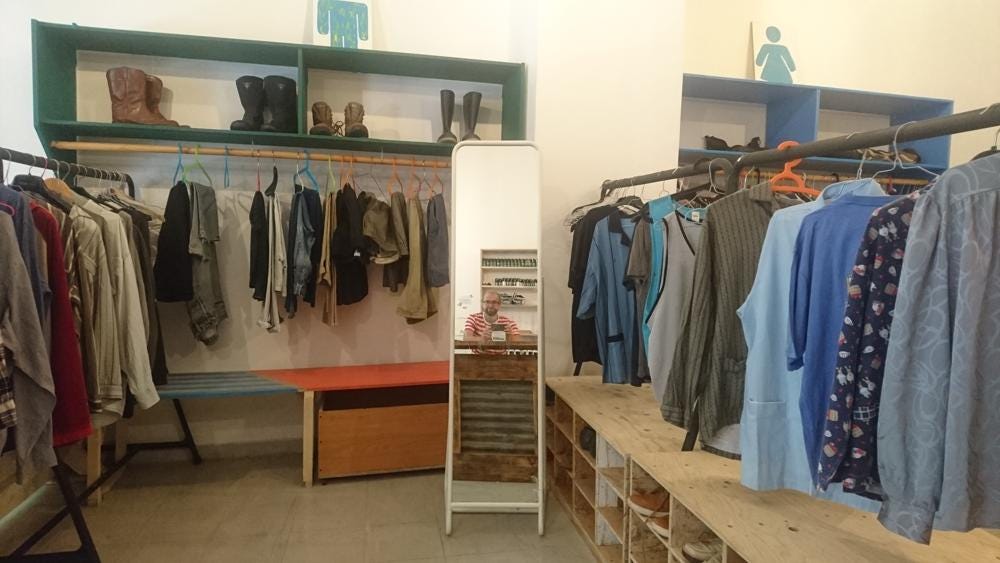
Happy Friday!
Two things happened in the last week that more or less capture the vagaries of moving to a new city.
Firstly I did a search online for an Ultimate frisbee team in Athens. There is one, and only one. Remarkable, whichever way you look at it; after all, Greece is the home of the flying disc.
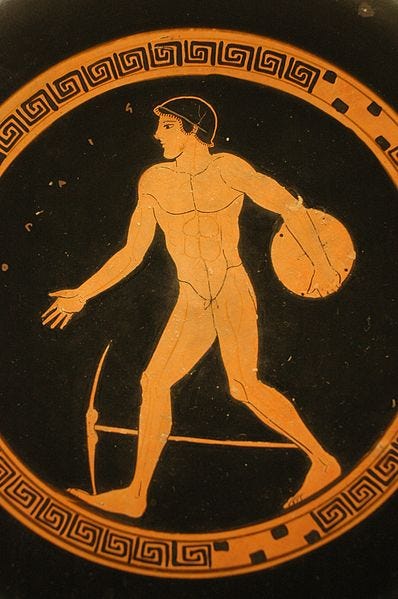
From this very modern connection, I made new friends and cracked a chink in the armour of Athens, more familiar with friendly faces. One of the women on the team passed me the number of a Greek teacher, so that's another slab in the pavement of life.
The second occurrence was the opposite. I tried to get in touch with the Khora volunteering team over email. No response. So I cycled over to the building. No one there. Neither outcome was particularly surprising because the community centre closed a month ago, threatened with a €300,000 fine for unregulated activities.
Somewhat deflated, I returned home. The heat was melting the roads and I hadn't got much further along in my search for some good to do.
Then I got a message from a friend who'd been to Athens many years ago. 'Make sure you go up Strefi,' she wrote. Well, I thought, I'm not doing anything else this sunset.
Strefi is one of the smaller hills of Athens, a rock outcrop that until the 1920s was a stone quarry for the city. Dog walkers prowl the lower tier, there's a football pitch full of screaming and a cafe for more gentle pastimes.
But climb into the more rarefied air, and you start to spot blankets cast between trees, over mattresses, beside the scorched stones of a fire pit. In the Anarchic endroit of Exarchia, Strefi is the hilltop redoubt of the redoubters.
On the rocky peak of the quarry, people perch on stones to smoke cigarettes, smash beer bottles, and spend quiet moments gazing out at the city spread of Athens, a skyline still topped by the ancient Parthenon.
There, I wrote my diary, half listening to the newly-acquainted couple behind me talking about their international experiences of coming out. Behind them I could also catch the higher frequency of English - Home Counties English, not the Globish of the gay guys.
I stood up, took a few steps towards the English voices. And pretended to become sublimated in the sundry shades of pink performed by the dying sun.
I shuffled with my camera, listening, glancing, side-eyeing the group. No, not now. She's in a deep and meaningful. Approach from the front, not from behind. Then I break the circle.
They turn and stare.
'Hi...'
Now.
They were a group of volunteers from Khora. The self-same group of volunteers I had been trying to contact by email. They smiled and passed the wine.
Which just goes to show. Sometimes the internet smooths our passage (especially when trying to contact a frisbee team predominantly comprised of computer software engineers), but sometimes the internet is hopeless.
Far better to climb to the top of the nearest hill and start talking.
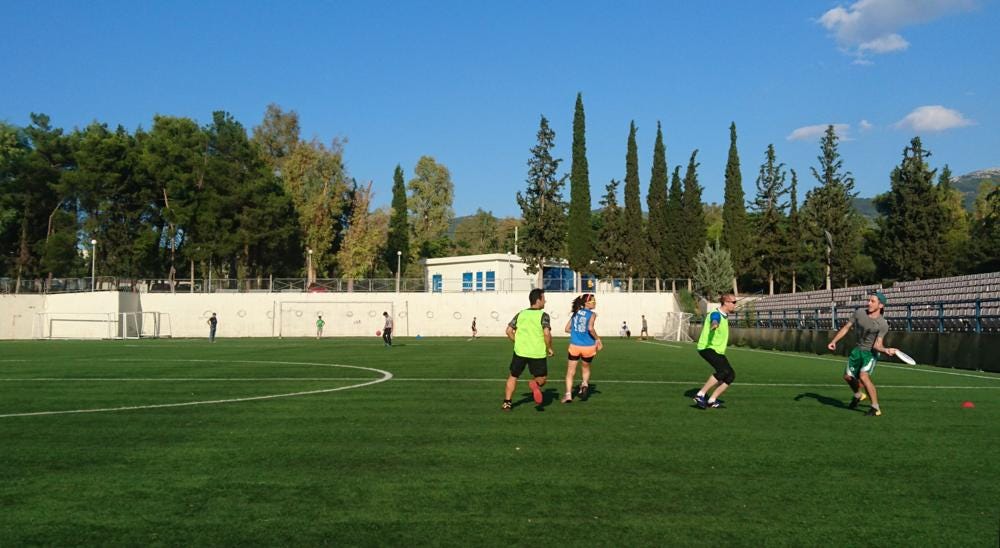
The only Ultimate team in Athens.
KHORA
The generously observant among you will have realised by now that I'm raising money for a community centre for refugees in Athens called Khora.
I promised you all that I'd do my best to find out where our money is going, and that I have done. Thanks to sunset on Strefi.
THINGS I HAVE LEARNT ABOUT KHORA, EPISODE 1
Khora is a wildly ambitious organisation, comprising education, legal advice, daycare, welfare, community kitchen, free shop, and many other departments. If you've got an idea, they'll help you carry the baton.
They are run by consensus. Yes, this means meetings go on for a very long time, in multiple languages.
They are looking for a new building to rent after they were evicted from their old one in June by an overzealous municipality.
They are seeing their work transition from emergency aid to helping refugees establish themselves in Greece.
It seems Khora works best as a mother to passion projects. Sometimes these passion projects grow into fruit that fall from Khora, seeding new trees in the orchard.
One such example is the Scrap Coop, a community carpentry workshop that started life in the old Khora building. Now its own entity and hoping to branch out into bike mechanics.
Another example is the Khora Free Shop where anyone - refugees, the homeless, locals - can pick up essentials for free. It currently runs 3 days a week, powered entirely by volunteers led by the indomitable Rizwan, in a building transformed into what looks like a Shoreditch vintage pop-up.
The volunteers who run Khora (for it is entirely volunteer run) are a roughly 50/50 mix of refugees and non-refugees. I have met people from Switzerland, Austria, Baluchistan, Palestine, Syria and Pakistan, but Khora has a strong UK presence. British volunteers make up the largest single contingent.
Language is a great barrier to success.
Resources are scarce. The Khora Free Shop has clothes to give away to families, some toys and books for the children, and a heroic donation of soap and shower gel from cosmetics brand Lush.
But more striking is what we don't have. It's just bad luck we don't have your size trousers, we ran out of Pampers weeks ago, and there are no razors, no. All we can do is shrug. The main warehouse in Athens is an empty husk of its former self.
The volunteers here say that Europe has forgotten about the refugees in Greece. The crisis is out of the news, so it must be over.
When we think about, we know this can't be true, but we don't think about it.
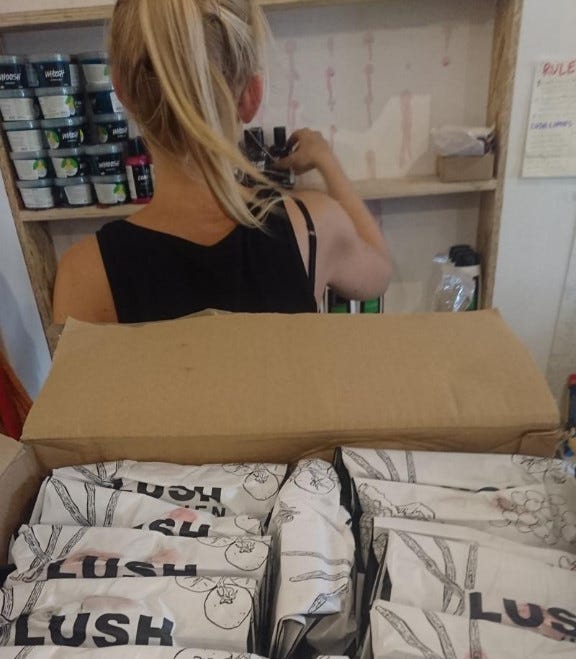
Campaigning cosmetics company Lush send Khora boxes of handmade soap, shower gel and various other toiletries, including pumice stones.
Mmm! Delicious.
>> INPUT
The launch of the Psychedelic Society's campaign to reclassify psilocybin as a Schedule 2 substance, to make scientific research easier. Learn more in their video.
The Wine-Dark Sea: Color and Perception in the Ancient World by Erin Hoffman. "[I]n addition to the sea, sheep were also the color of wine; honey was green, as were the fear-filled faces of men; and the sky is often described as bronze."
The Greek Language. Luckily, Greek is full of words that I learnt from English. Words like politics, philosophy and Internet.
Where Joy Hides and How to Find It [VIDEO] "[O]ne confetto — which happens to be the singular of confetti, in case you were wondering — isn’t very joyful, but multiply it, and you have a handful of one of the most joyful substances on the planet."
Are You Syrious? Daily digests of happenings on the European migration routes. Essential reading if you want something a little more real than the BBC.
OUTPUT >>
The Limits of Rationalism: The Existential Journey of Levin in Tolstoy’s Anna Karenina (July)
London to Greece via Paris, Milan and Brindisi with (but not by) a bike (July)
...COMING UP...
Beach Frisbee out in Marathon. Yep, that Marathon. You can't move for ancient history in Greece, even when you just want to throw a disc around.
More Greek lessons. I've even installed a Greek keyboard on my phone. So now I can talk nonsense in multiple languages.
More conversations, more handing out Lush cosmetics, more shrugging my shoulders and apologising for a dearth of almost anything else useful.
Moving on from Athens?
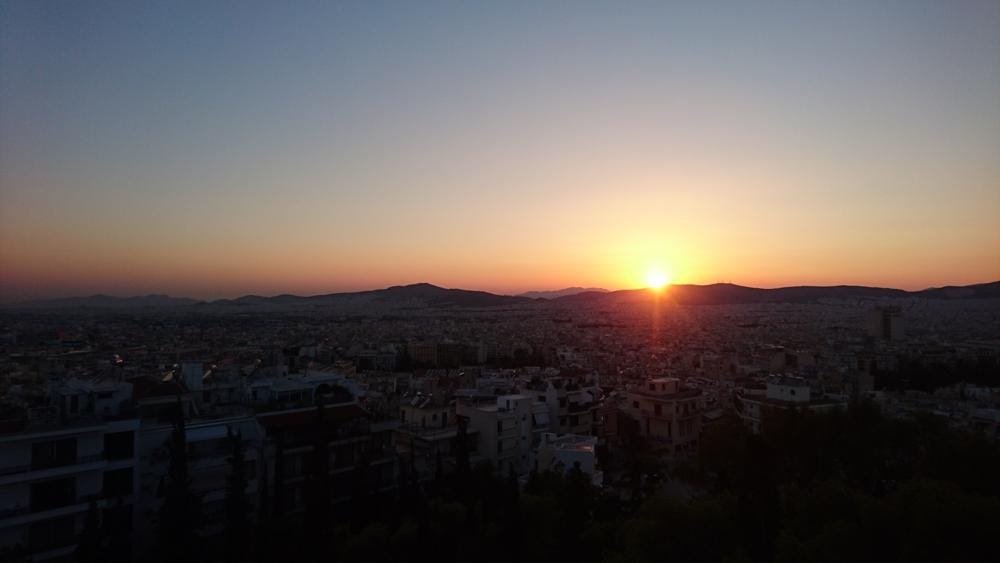
Sunset from Strefi.
Now On: The Victor Frankl 5-a-day Book Club!
Membership Criteria: Read 5 pages a day of Man's Search for Meaning to complete the whole darn text in only 28 days. I'll be tootling through the text at just 5 pages a week, so you've got plenty of time to catch up.
Day 12, p64-70
Today's pages concern Victor Frankl's attitude to fate. He believed that destiny will run its own course, and his only responsibility was to his own conscience.
One day, Frank's name appeared on the list for transportation to a 'rest camp'. The other prisoners were all convinced that this was nothing more than a euphemism for 'gas chamber', but Frankl did nothing to get his name crossed off the list - even when the camp's chief doctor told him he only had to ask.
'I told him that this was not my way; that I had learned to let fate take its course. ... He shook my hand silently, as though it were a farewell, not for life, but from life.'
As it happened, the transport was to a rest camp. Those who had got themselves off the list were left behind and, shortly afterwards, the famine became so acute that cannibalism broke out. As Frankl observes: 'They tried to save themselves, but they only sealed their own fates.'
The prisoners' desperate efforts to avoid the hand of fate reminds Frankl of a story he calls Death in Teheran, worth quoting in full:
A rich and mighty Persian once walked in his garden with one of his servants. The servant cried that he had just encountered Death, who had threatened him. He begged his master to give him his fastest horse so that he could make haste and flee to Teheran, which he could reach that same evening. The master consented and the servant galloped off on the horse. On returning to his house the master himself met Death, and questioned him, “Why did you terrify and threaten my servant?” “I did not threaten him; I only showed surprise in still finding him here when I planned to meet him tonight in Teheran,” said Death.
Prisoners in the camp feared making drastic decisions and taking the initiative: 'there was a great apathy' and they preferred to 'let fate make the choice'. Nowhere was this agony of decision more apparent than when the opportunity to escape arose. Frankl experienced this 'torment' twice.
The first time, he turned back when gripped by an unpleasant feeling as he said goodbye to one of his patients. "You, too, are getting out?" the patient asked in a tired voice. It felt like an accusation. Frankl listened to his conscience and changed his mind about the escape. The unhappy feeling left him and he 'gained an inward peace that [he] had never experienced before'.
The second time Frankl tried to escape, was, by fortune, on the very day the International Red Cross arrived. 'Now there was no need for us to risk running toward the fighting line.'
Frankl's tribulations weren't yet over, but that's a story for next week.
---
Share your thoughts by replying to this email. We will continue next week...
Remember: Forever is a big word, but it's not as long as tomorrow.
Much love,
- dc
CREDITS
David Charles wrote this. David is currently gallivanting around Europe and will be talking to refugees in Greece. He is also co-writer of BBC Radio sitcom Foiled, does copywriting for The Bike Project and is almost always available for work. davidcharles.info // @dcisbusy

A flock of cobalt-winged parakeets by Liron Gertsman. Via Kottke.org.



